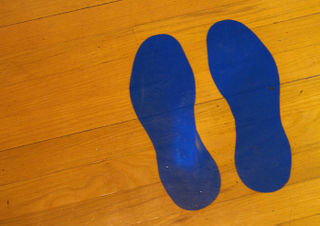
On his bedroom floor, a tracing of the soles of Diego Rivera's large shoes invites the visitor to measure up.
Mexico Cooks! felt their presence, but they were always just out of sight: behind us, in the next room, on the patio while we were upstairs, appearing and disappearing along the sidewalk in front of the cactus fence. We heard the whisper of a silk dress brushing against a doorpost, caught the flash of a struck match, smelled a hint of something frying. Diego Rivera, Frida Kahlo, their host of glamorous friends–Tina Modotti, Juan O'Gorman, María Félix, Pablo Neruda, Dolores del Río, Lázaro Cárdenas–they were all there, or had left just moments before we arrived.
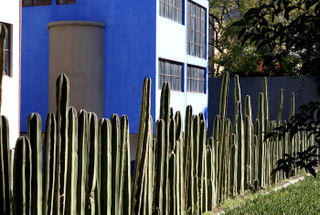
Organ pipe cactus forms the fence along the public sidewalk.
Such is the powerfully evocative Museo Casa/Estudio Diego Rivera y Frida Kahlo, designed and created in the early 1930's by the artists' friend, the up and coming architect and painter Juan O'Gorman. Best known for the enormous mosaics that wrap around all four sides of the library at the Universidad Nacional Autónomo de México, it's said that O'Gorman tried to create an ugly house, but failed miserably. O'Gorman designed these two houses to be a factory, a machine to live in joined by a bridge representing Rivera and Kahlo's passion: a machine for Rivera and Kahlo to create their own aesthetic world. From 1932 until 1934, they lived here and solidified their reputations as two of Mexico's finest working artists.
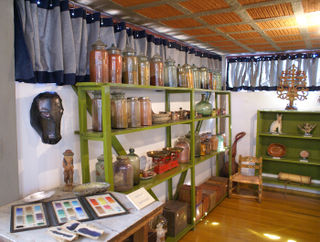
Jars of paint powders and folk art fill the shelves along Rivera's studio walls.
When Diego Rivera died in 1957, his daughter, Ruth Rivera Marín, inherited the property. She donated it to the Instituto Nacional de Bellas Artes. In 1986, the museum opened its doors to the public. It continues to show how Rivera and Kahlo lived: simply, passionately, intelligently.
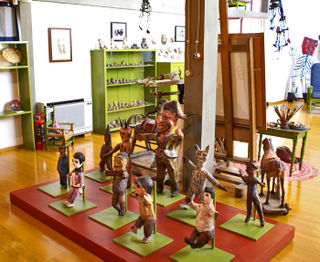
A small collection of Diego Rivera's figuras de cartón (cardboard figures). A few of his pre-Columbian clay figures line up in the green bookcase.
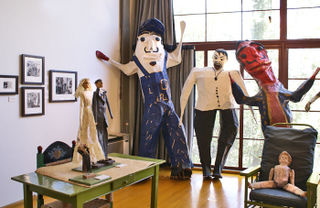
Both Rivera and Kahlo collected cardboard Judas figures. More than 175 cardboard figures, including Judas, toritos (little bulls covered with fireworks), and piñatas, form part of the huge quantity of folk art that the artists loved.
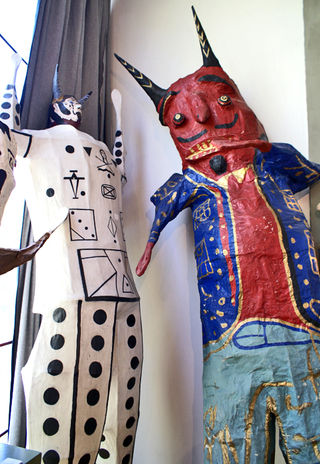
Two towering Judas figures, each more than 12 feet high, loom over visitors from their corner in the living room. The Judas figures generally look like devils and often are caricatures of people both famous and infamous. In Mexico, they're burned during Semana Santa (Holy Week).
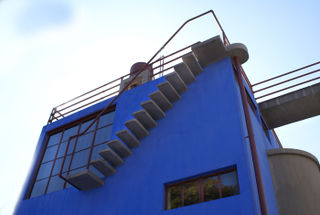
Frida Kahlo's house and studio. The outside stairway, where she often sat in Mexico City's hot afternoon sunlight, leads to the roof and the bridge between her house and Rivera's.
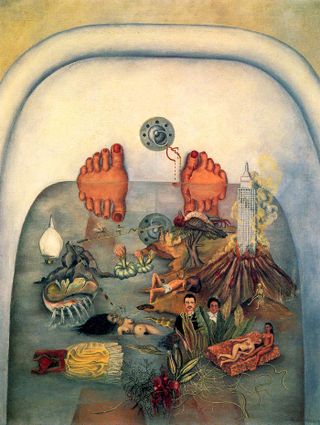
Kahlo's painted "What the Water Told Me" in the bathtub of this house. Filled with psychological symbolism, the painting represents her life's struggles. She also painted "Las Dos Fridas" while living here.
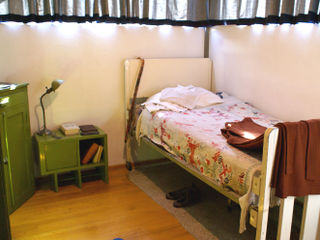
Diego Rivera's bedroom. The tiny room and narrow orthopedic bed seem nearly monastic when compared to the towering artist's flamboyant, larger-than-life persona.
Rivera's office. The figure to the left on top of the bookcase is Frida Kahlo's death mask.
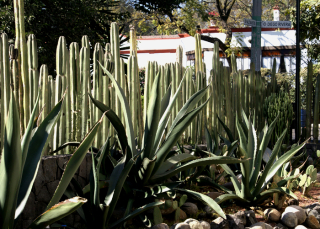
Museo Casa/Estudio Diego Rivera y Frida Kahlo is at the corner of Altavista and Calle Diego Rivera (formerly Calle Palmas) in San Angel, one of Mexico City's finest old neighborhoods.
Looking for a tailored-to-your-interests specialized tour in Mexico? Click here: Tours.
Leave a Reply